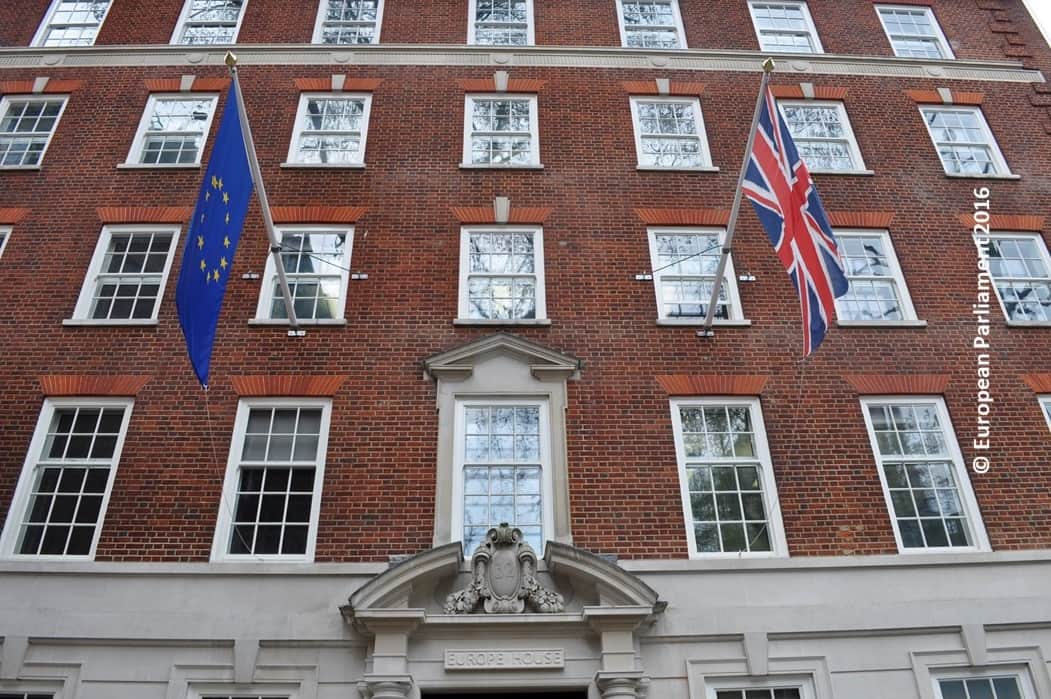by Jaap Hoeksma
Philosopher of law and director of Euroknow; Author of “The Case Bundesverfassungsgericht versus EU Court of Justice – Can the EU function as a democracy without forming a State?”
Processes like Brexit tend to bring out the worst in people and institutions. The row between London and Brussels about the diplomatic status of the EU-Representation in the UK forms yet another example of PM Johnson’s political strategy to embarrass the EU whenever and wherever he can. The European Union is to blame for the present crisis inasmuch as it is unable to defuse the tension by saying in plain and simple terms what it is. The irrational behaviour of Johnson, however, is entirely contradictory. Before Brexit he accused the European Union of being a super-state if not a ‘Fourth Reich’, while he argues after Brexit that the EU cannot be regarded as a state at all!
EU neither state…
Johnson’s sudden change of argument does not imply that all Brexiteers share his current position. As a former member of the European Parliament, Daniel Hannan writes in The Telegraph of 24 January that he continues to regard the EU as a state. He draws his conclusion on the basis of the definition of states as contained in the 1933 Montevideo Convention on the Rights and Duties of States. Considering that the EU has a) a permanent population, b) a defined territory, c) a government and d) the capacity to enter into relations with other states, he concludes that the European Union must be a state. In doing so, however, he prefers to ignore that the organisation of the United Nations does not recognise the EU as a state because it fails to fulfil the elementary precondition of enjoying sovereignty. The EU Court of Justice established in 2014 for the same reason that the Union is by its very nature precluded from being regarded under international law as a state.
…nor organisation of states
The fact that the EU fails to qualify for statehood does not imply that it therefore must be an organisation of states. Johnson’s binary conclusion to this effect is wrong, as the EU is not only composed of states, but also of citizens. Contrary to regular organisations of states the EU has an autonomous legal order, a directly elected parliament, a single currency as well as an internal market and an area of freedom, security & justice and an autonomous democracy. Moreover, the EU has introduced a rule of law-mechanism with respect to EU subsidies in 2020. Tentative as this instrument may still be, it is principally incompatible with the concept of organisations of states as it would be condemned by the participating states as an intolerable interference in their internal affairs.
A democratic Union of democratic States
So, if the opposing factions of the Brexiteers are unable to identify the nature of the European Union, the question arises as to how the EU presents itself. On the website, known as the Europaserver, the EU describes itself as a ‘unique economic and political organisation of 27 countries, which together cover much of the European continent’. While this description perfectly fits an organisation of states, it is contradicted by the EU’s aspiration to ‘give new impetus to European democracy’ and by its action plan to defend European democracy (EDAP), as the Commission Von der Leyen intends to do.
The reason why the EU continues to be unable to identify itself seventy years after the start of the process of European integration is that it is still locked in the old and outdated feud between federalists and intergovernmentalists, i.e. between the proponents of a federal United States of Europe and the advocates of a confederal Europe of the Nation-States. In the course of those seventy years, however, the aspiration of the participating states to ‘lay the foundations for an ever closer union among the peoples of Europe’ has resulted in the emergence of an entirely new kind of organisation. The EU is not merely a Union of democratic States, but also forms a democracy of its own. The unprecedented hallmark of the 2007 Lisbon Treaty is that it construes the EU as a representative democracy without turning the Union into a federal state. So, the EU can be described in clear and simple terms as a ‘democratic Union of democratic States’.
Conclusion
In terms of international relations, the European Union may present itself now as a ‘democratic regional organisation’. Consequently, the EU will be well-advised to instruct its ambassador in London to enlighten the UK government about the nature of the Union and its place in the diplomatic world. Then, it will be up to the British government to decide whether it wants to acknowledge the status of the EU as the first democratic regional organisation within the global UN-system or intends to isolate itself further from Europe and to sour relations with the EU for years to come.





